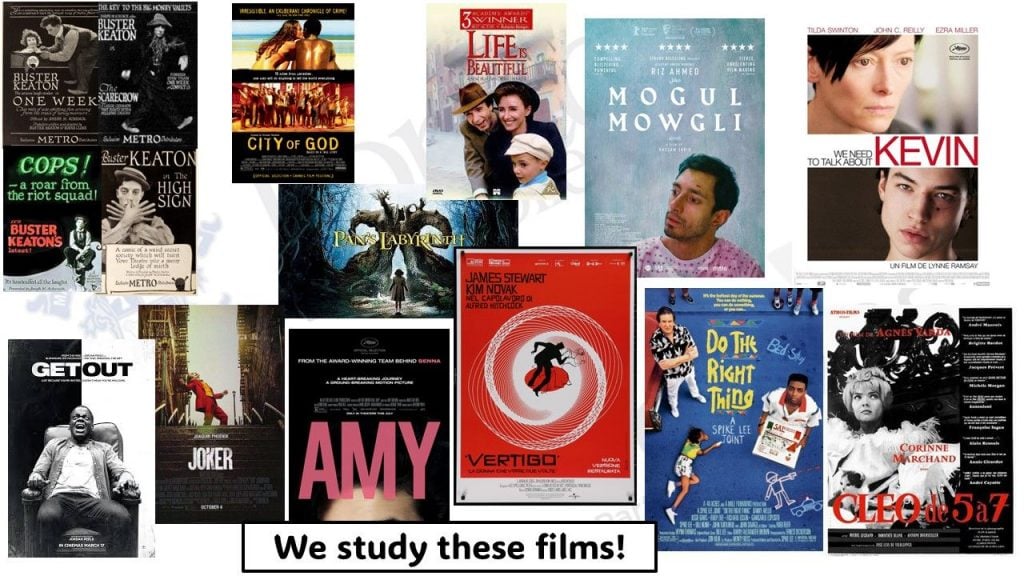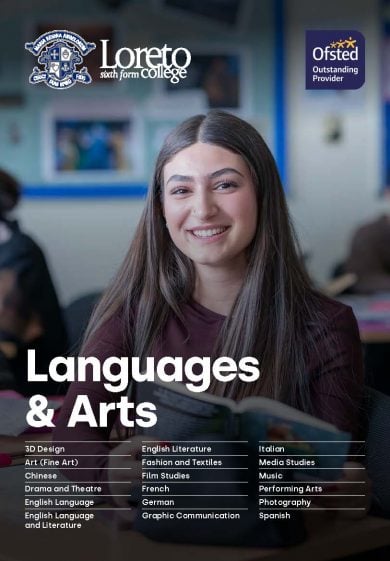
A Level Film Studies
- Interested in the evolution of storytelling through the medium of film?
- Are you ready to explore the world of film and decode its influence on our lives?
Exam Board: EDUQAS
Components
Component 1: Varieties of film and film-making
Percentage of total marks: 35%
Method of assessment: Written Exam 2hours 30 minutes
You will study Hollywood cinema, American independent film and British film.
Component 2: Global filmmaking perspectives
Percentage of total marks: 35%
Method of assessment: Written Exam 2 hours 30 minutes
You will study world cinema, documentary, silent cinema and experimental film.
Component 3: Production
Percentage of total marks: 30%
Method of assessment: creative project and written evaluation
You will create a short film or screenplay for a short film (and an accompanying digital photography storyboard.)
Skills
You will develop a strong understanding of film language and hone your analytical and interpretative skills whilst watching a range of films. You will develop filmmaking and screenwriting skills in the coursework unit and learn how to use industry-standard editing software, and/or screenwriting software.
Careers/destinations
Many students go on to film-related degree courses. Past students have studied for a wide range of degree courses including English, Music, Architecture, Fine Art, Law, History, Maths, Medicine, and Dentistry. Film goes so well with any other two A Levels!
Film Studies
What’s the difference between Media and Film?
In short, the clue is in the title! In Media Studies, students learn about lots of different types of media texts: TV, radio, games, mags, ads (learning a little about a lot). In Film Studies, we concentrate on the study of films (a lot about a little). If you love film, then Film Studies is for you! Another way to think about the difference is that Film Studies is a lot like English Literature – close analysis of longer texts. Media, is more like English Language – shorter texts and more numerous.
What films will I study?
You will study a range of films from the very first silent films, to more recent indie offerings:
Component 1
A: Vertigo and Do the Right Thing
B: Joker and Get Out
C: We Need to Talk About Kevin and Mogul Mowgli
Component 2
A: Life is Beautiful/Pan's Labyrinth and City of God
B: Amy
C: Selected Buster Keaton shorts
D: Cleo de 5-7
Component 3
The coursework requires students to study 80 minutes of short films from a selection set by the exam board (Eduqas).
Please note these films are set by the exam board and are subject to change.
Will I go on any trips?
We go on a range of trips throughout the year including free ones to more expensive options. We want to support your studies and boost your knowledge and understanding of careers in our industry.
Past trips include:
BBC at Media City
Two-day trip to London
Trip to Paris and Disneyland
BFI Study days
The Sharp Project
Into Film Festival
Film screenings at various cinemas
Native Creatives careers event
We also regularly invite guest speakers into college.
How can I get into the television/film industry?
We have a very active careers offering – as well as taking part in a number of industry careers events through the year, we also run our own careers event. In addition, we have a number of enrichment opportunities including We Call the Shots – our own young women’s media careers project, and Television Studio for aspiring production assistants and presenters. In addition, our
students regularly take part in the BFI schemes for Film Production, and Animation. On top of this, many members of staff in the department have real-world industry experience. Over the years we have supported a number of students into BBC apprenticeships as well as those moving into higher education.
Busting Film Studies myths!
Our course is very much Oxbridge friendly – we have a number of Oxbridgebound students past and present. Film Studies is an academic course – universities of all types love it! Not just ‘watching films’… ours is a rigorous, essay-based subject and the course will challenge you in all sorts of ways. Film complements lots of subjects – you name it, Film goes well! The course will broaden your cultural horizons. A brilliant third subject for aspiring medics, dentists, and vets.

